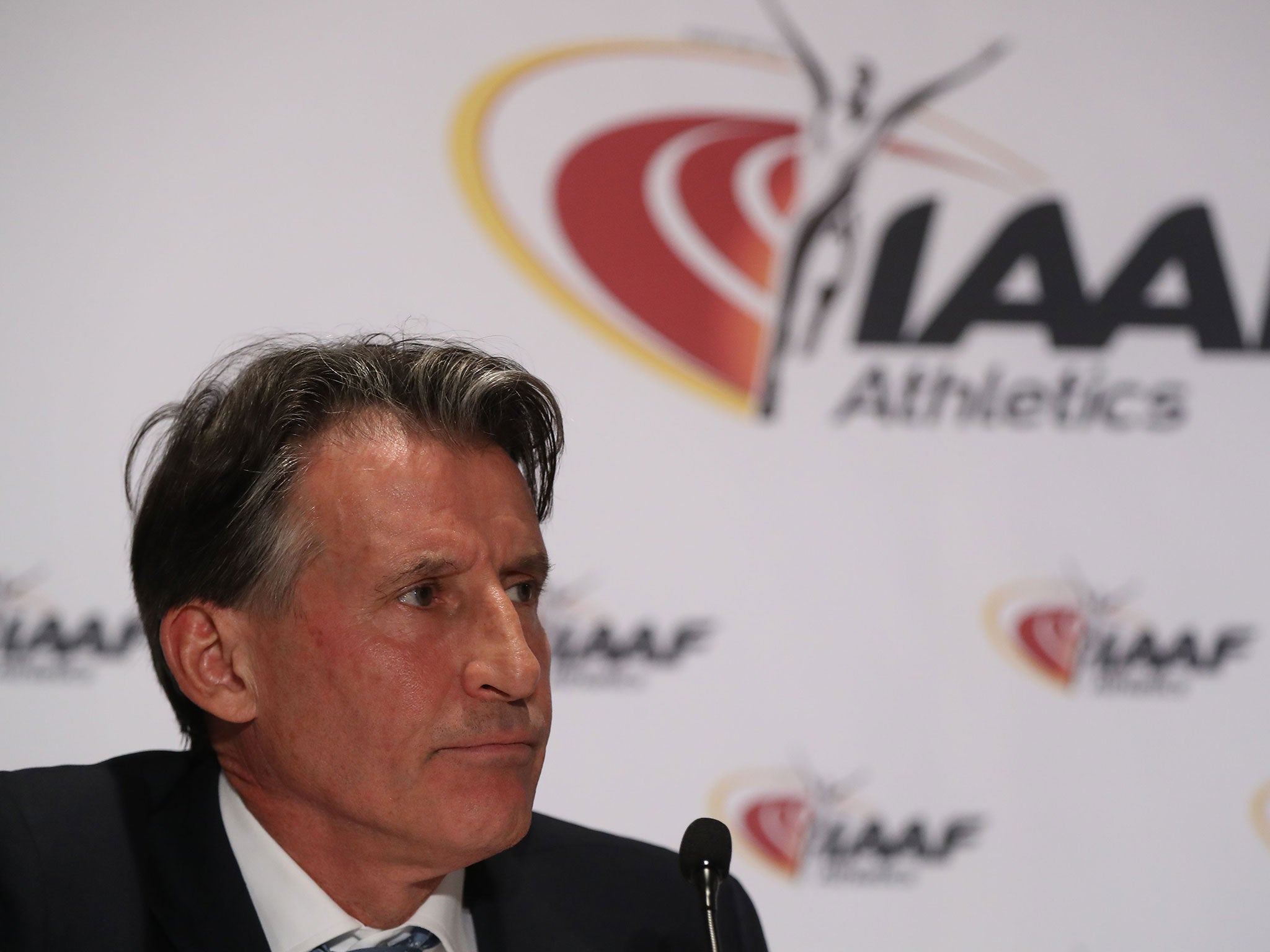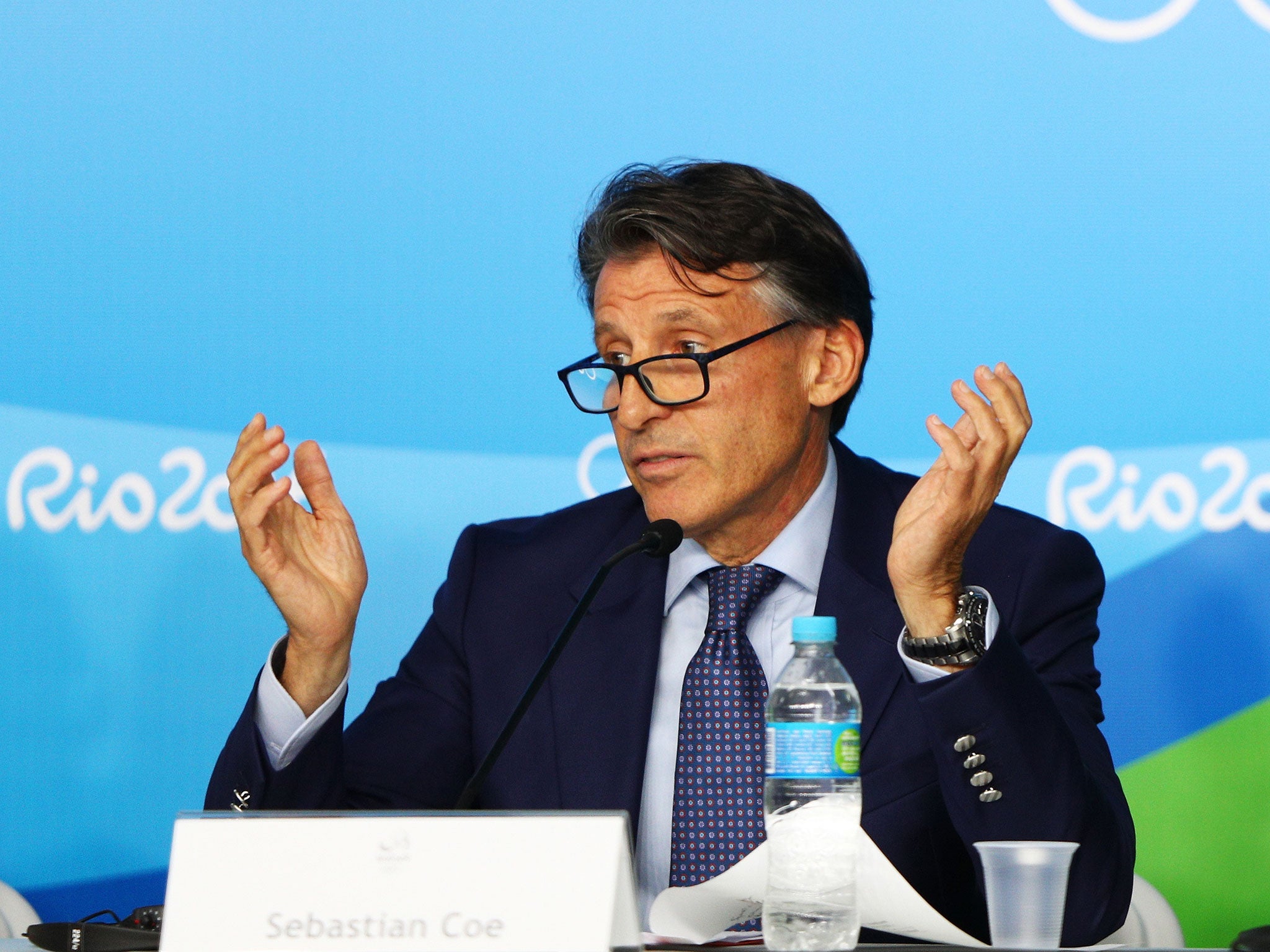Sebastian Coe still won't face MPs despite emails revealing he knew about IAAF corruption and Russian doping
Emails sent in August 2014 appear to show that Coe had 'been made aware of the allegations' that he told MPs he did not learn about until the following year

Sebastian Coe still does not consider there is a need for him to appear before MPs investigating doping in athletics, despite the emergence on Tuesday of emails which appear to contradict his claim to them that he did not know about an extortion racket in the organisation he now leads.
Coe’s representatives said that another appearance before the culture, media and sport select committee would potentially be a waste of taxpayers’ money, MPs time, though the questions were mounting on Tuesday night as his former chief of staff was expelled by athletics world governing body for concealing a 30,000 euro payment and misleading an investigation.
MPs are also keen to ask him why he told them in December 2015 that he was "not aware" of specific allegations of the corruption of anti-doping procedures in Russia, when an email now released, from Coe to the athletics governing body’s ethics commission chair Michael Beloff QC states: "I have now been made aware of the allegations."
The email’s contents were revealed hours before Nick Davies, IAAF deputy secretary under Coe, was expelled from the governing body over allegations he was one of three officials who took money to delay naming Russian cheats. Davies has been permitted to continue working in athletics.
The email, released by the committee, was dictated by Coe to a temporary PA, several hours after he received a telephone call from the former athlete and administrator Dave Bedford, telling him that senior figures close to IAAF president Lamine Diack had forced the Russian marathon runner Liliya Shobukhova to pay £360,000 to conceal a positive drug test.
Though Coe made no mention of the Bedford call when he appeared before MPs, he actually emailed Beloff to say he had “received copied documentation of serious allegations being made by and on behalf of the Russian female athlete Shobukhova from David Bedford.” He asked Beloff whether he should forward the documents and states: “The purpose of this note is of course to advise you that I have now been made aware of the allegations.” Beloff told him to forward the documents.
Though select committee chairman Damian Collins told the BBC on Tuesday that there was a discrepancy between what Coe said and what he actually knew, his representatives believe that the absence of a detailed explanation in the Beloff email supports the former Olympic athlete’s claim that he was unaware of Russia’s systematic and organised complicity in doping. Coe argues that since Shobukhova was issued with a high profile ban from athletics only four months before the correspondence, the “allegations” referred to were already widely known.
His representatives also state that the language he used in his email to Beloff - whom he appointed to the ethics commission post - signed off “As ever, Seb” – was the same as that used by Bedford in relating the allegation to Coe.
Collins was unconvinced. “Whatever excuse he gives, it is clear that Lord Coe decided not to share with the committee information that was relevant to our inquiry on doping in sport,” he told the BBC. "The committee asked him about his knowledge of doping in Russian athletics and of corruption within the sport. In his answers, he gave the impression that he was unaware of specific allegations.”

The allegations had actually been detailed in full in the Mail on Sunday, as far back as 2013, though Coe maintains that he was unaware of them until they were broadcast in a German television documentary was aired in December 2014. The suspicion has always been that Coe was reluctant to make anything of them – describing subsequent reports as “declaration of war” on athletics – because to do so would have damaged his chances of being elected president of his sport’s governing body, the IAAF.
The select committee also published on Tuesday a four-page letter in which Coe defended himself against the accusation that he misled MPs about his awareness of Russian corruption on a criminal scale.
Coe, who received Bedford’s call when walking in the Swiss mountains with his son, said he was too busy on a family holiday to consider the seriousness of the allegations – despite Bedford’s testimony that he explained them in full to the then IAAF vice-president.
“There is in fact no discrepancy,” Coe writes. “I was not asked by your Committee when I first knew about the allegations that persons at the IAAF were involved in the cover up of Russian doping cases, and I have made clear I did not read David Bedford's emailed documents but asked my office to forward them to the person and the Commission with exclusive authority to investigate, in accordance with my obligations under the IAAF Ethics Code then in force. As such there are no grounds for suggesting I misled the Committee in any way in December 2015.”
Join our commenting forum
Join thought-provoking conversations, follow other Independent readers and see their replies
Comments
Bookmark popover
Removed from bookmarks